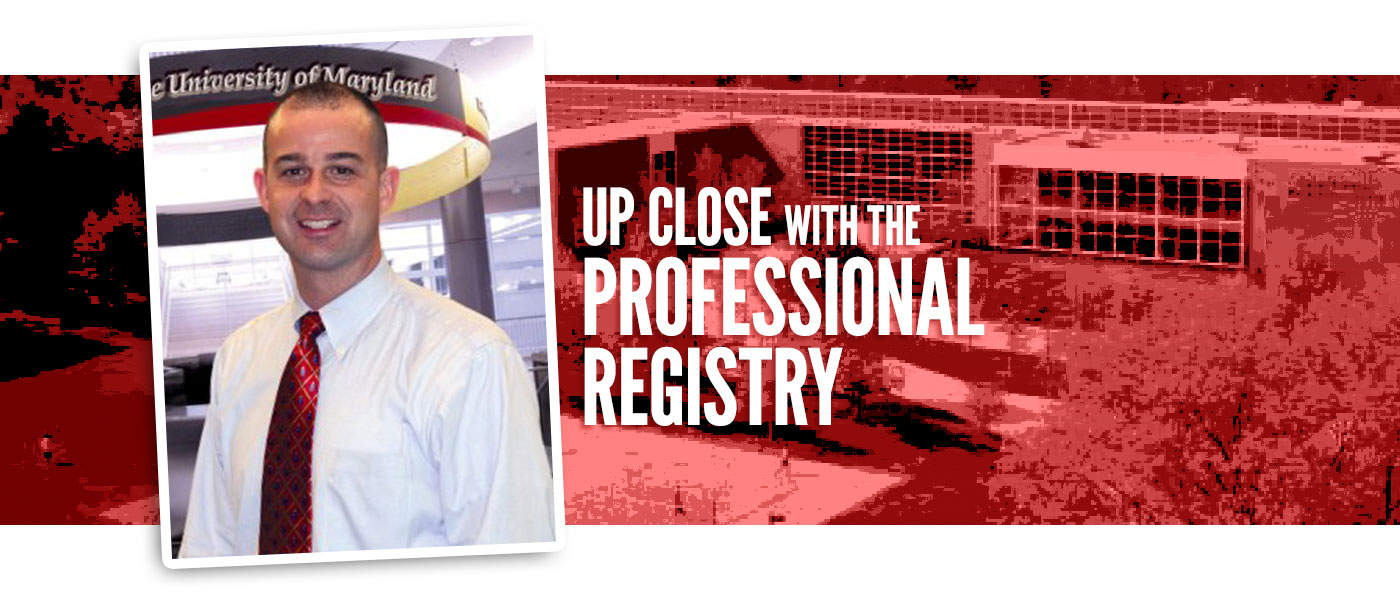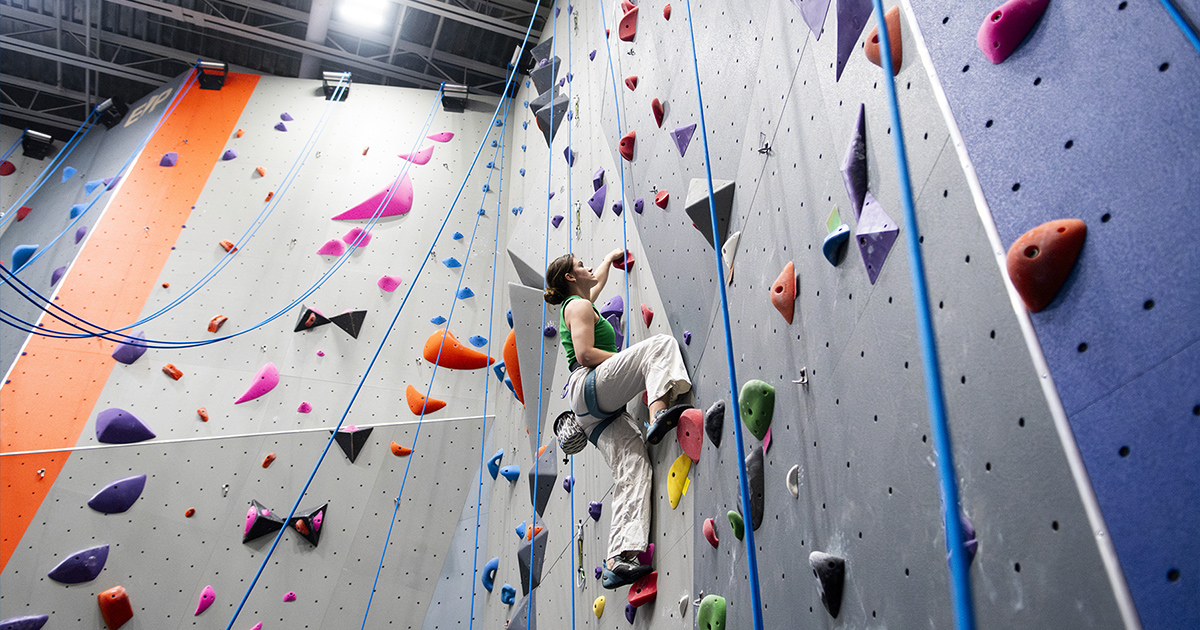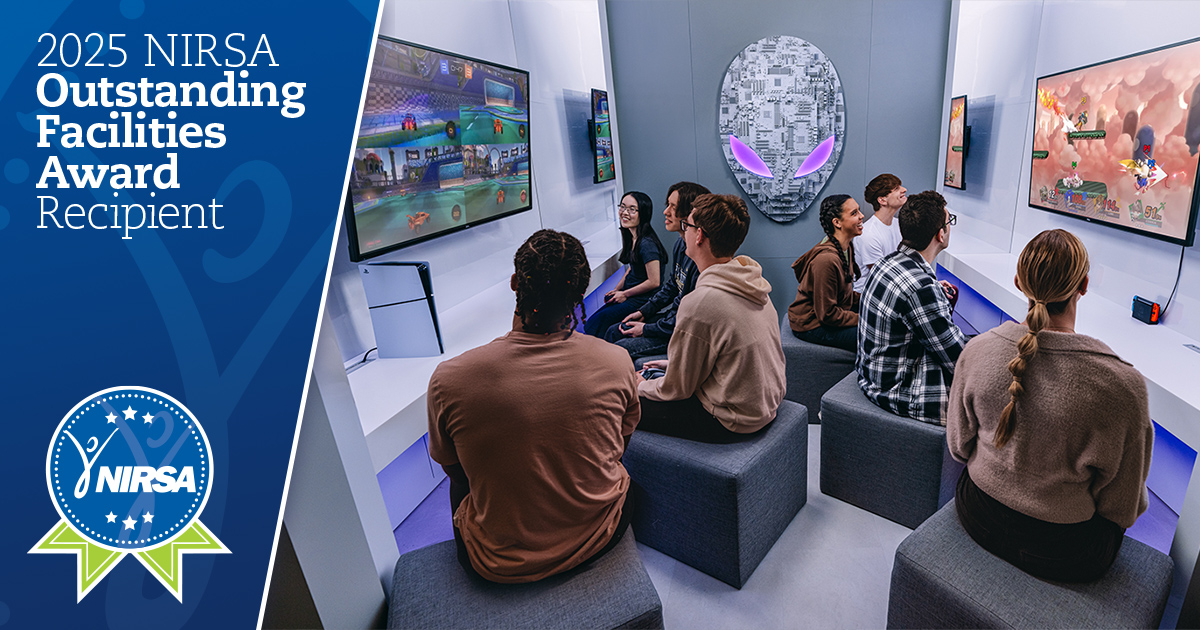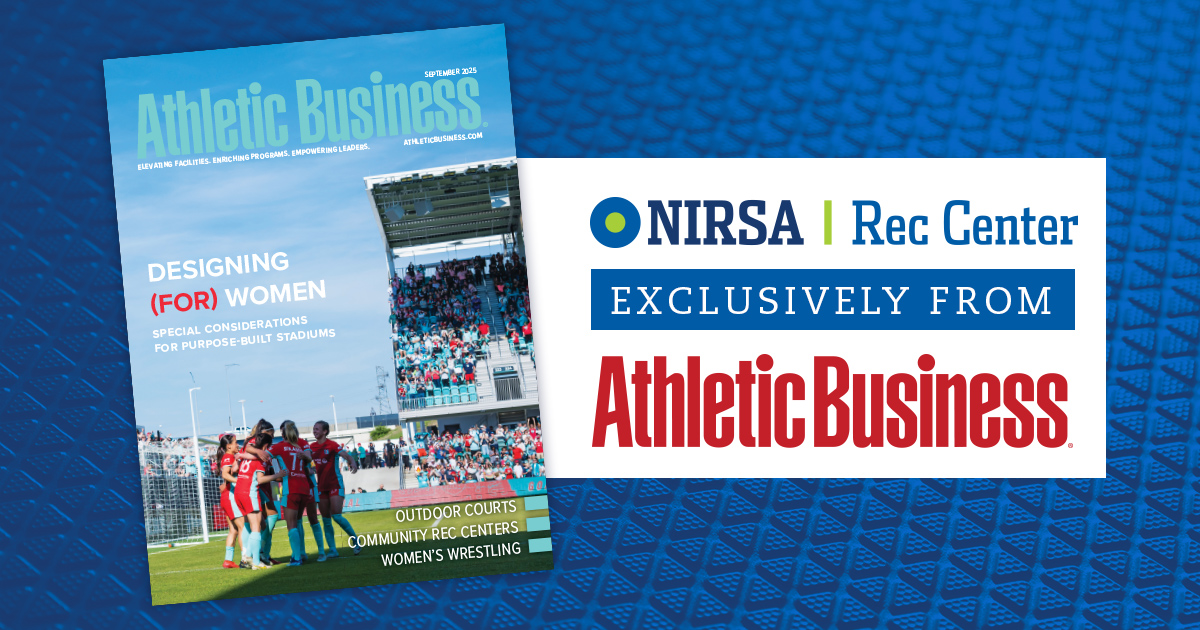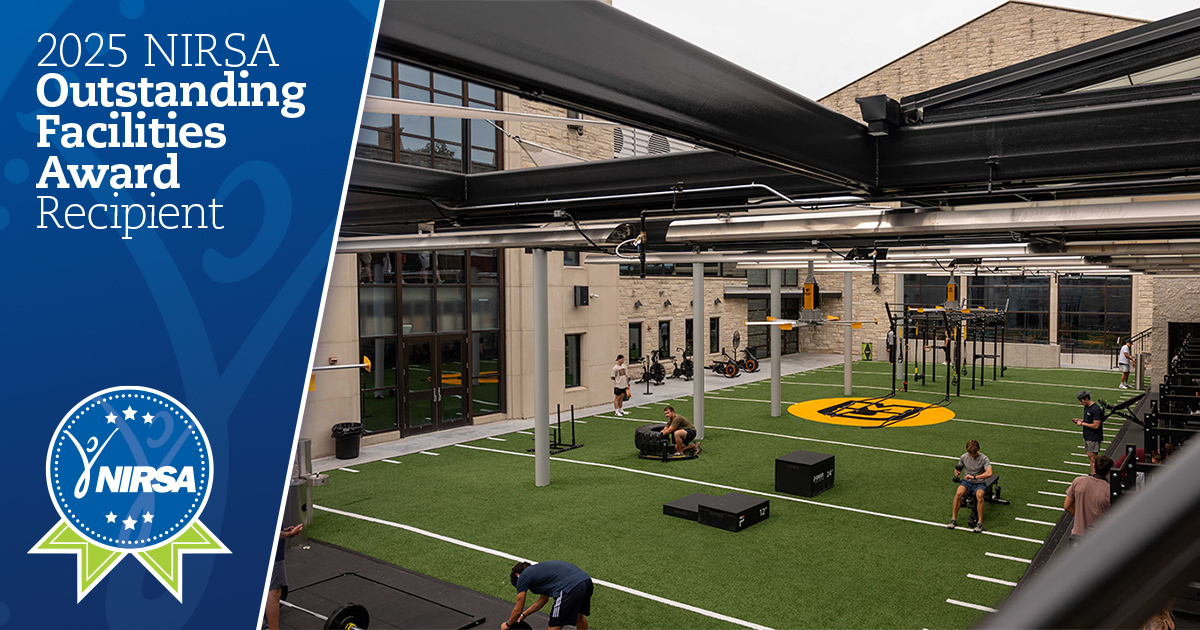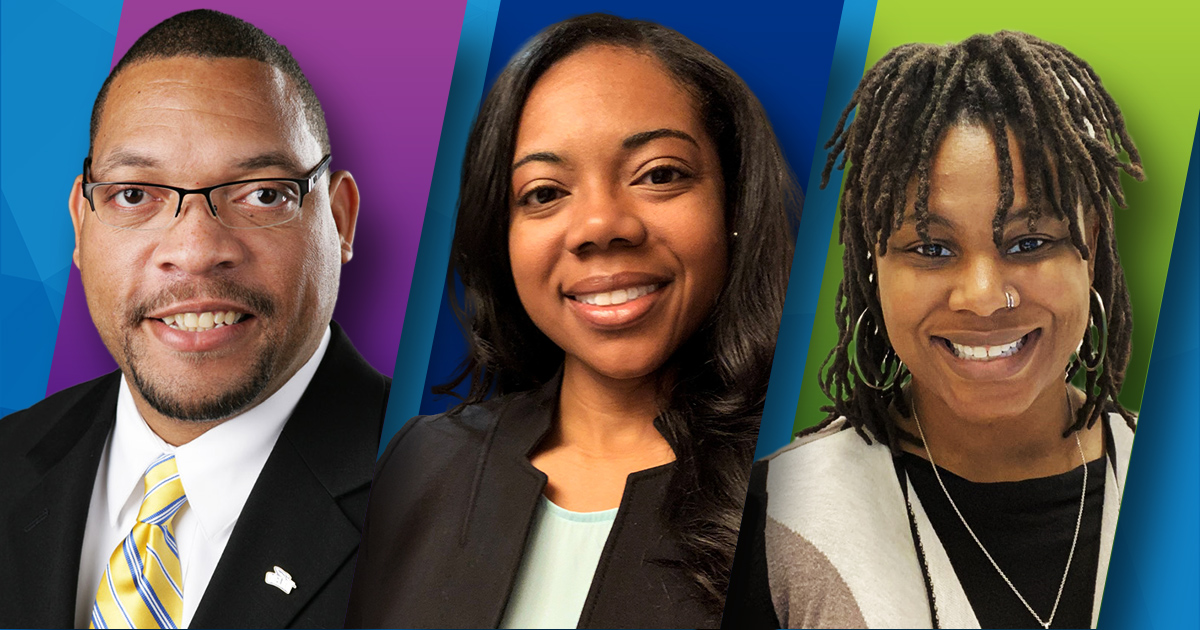By Erin O’Sullivan | December 6, 2013
In addition to living our collegiate recreation values of health and wellbeing, as members of the higher education community, we have other values to live too—chiefly, a commitment to continued and sustained learning.
Wallace Eddy, Associate Director in the Department of Campus Recreation Services at the University of Maryland, knows this well. He comes to collegiate recreation, after obtaining a doctorate in College Student Personnel Administration, from a wide and varied background in student affairs, having worked with residential life, fraternity and sorority life, student activities, and student union management.
His passion for being involved with students in higher education and their outside-of-the-classroom learning came from his own college learning experiences that went “beyond the traditional academic component.” And, he recalls, the people involved in guiding those experiences made all the difference. “I was fortunate to have mentors in my extracurricular experience who asked me questions about how what I was learning connected to my extracurricular activity. For me, this is what made my college experience a powerful learning opportunity.”
His initial decision to join collegiate recreation began as another way of diversifying his involvement, to “gain experience that would serve
His commitment to that belief, combined with his robust professional background, led him to the Registry of Collegiate Recreational Sports Professionals (RCRSP), which was, he says, “a natural fit.” Becoming a Registry member signals that a professional has demonstrated a well-rounded understanding of, and made a commitment to continual learning in, the eight core competencies for collegiate recreation. As someone who has dedicated his professional life to serving students in higher education, but was relatively new to our field, joining “the Registry provides a framework for understanding the profession based on the core competencies for collegiate recreation,” Wallace says.
The benefit of having these competency areas for the profession so clearly articulated, Wallace says, is that it “provides a structure (and reminder) of the content areas I need to get more knowledge of as I continue my career in collegiate recreation.” Some competency areas come naturally to Wallace, as they apply to his every day work and background knowledge. In these areas, such as Research and Evaluation or Risk Management, he is able to take the lead, through an involvement with webinars or other means, and share his expertise with other professionals.
Other competencies, like Business Procedures, are less familiar to him since he doesn’t oversee that area directly in his department. “However,” he says, “it’s important to have a working knowledge of business procedures, and therefore I chose to attend at least one session at Annual Conference that addressed these competency areas. What being a Registry member has done is to remind me that I need to develop my skill set and knowledge base in other areas of collegiate recreation, not only in the areas for which my immediate responsibility covers.”
“I noted that part of being a professional (regardless of the profession) was staying current in one’s field.”
Additionally, as someone new to the field, the Registry provided an immediate sense of community and camaraderie with those who had seen fit to make the same professional commitment he had. “While attending the Annual Conference,” he says, “I would see others with the RCRSP designation displayed on their name badge and this allowed for a common connection around which to start a conversation. This was helpful to begin building a professional network within the Association.”
An additional benefit of the Registry, Wallace notes, is how it will develop alongside his career. “The competencies will allow me to structure professional development conversations with the staff I supervise,” he says. “Once the Education Task Force completes its work of defining examples at the basic, intermediate, and advanced level for each of the competency areas, it will be similar to a rubric of experience that can be shared with staff to see how they might shape their own development. The competency areas are defined broadly enough that regardless of one’s academic preparation prior to entering the profession of collegiate recreation, they are understandable as a framework for future professional development. Ultimately, this will allow me to work together with staff to create [individualized] plans of professional development and also make better decisions regarding professional development opportunities for staff [as a whole].”
This is key because as the student populations of colleges and universities, as well as the, sometimes diverging, expectations set upon collegiate recreation professionals by both those students and the administration, increasingly diversify, so will the skills and knowledge required to serve them. This is why the Registry is set up as a long term resource for professionals that will grow and flourish with today’s up-and-coming NIRSA members.
As he continues to excel in the field of collegiate recreation, Wallace’s commitment to “the importance of understanding the breadth of knowledge required to be a well-rounded collegiate recreation professional as expressed by the NIRSA competencies” will continue to serve him, and the profession, well.


